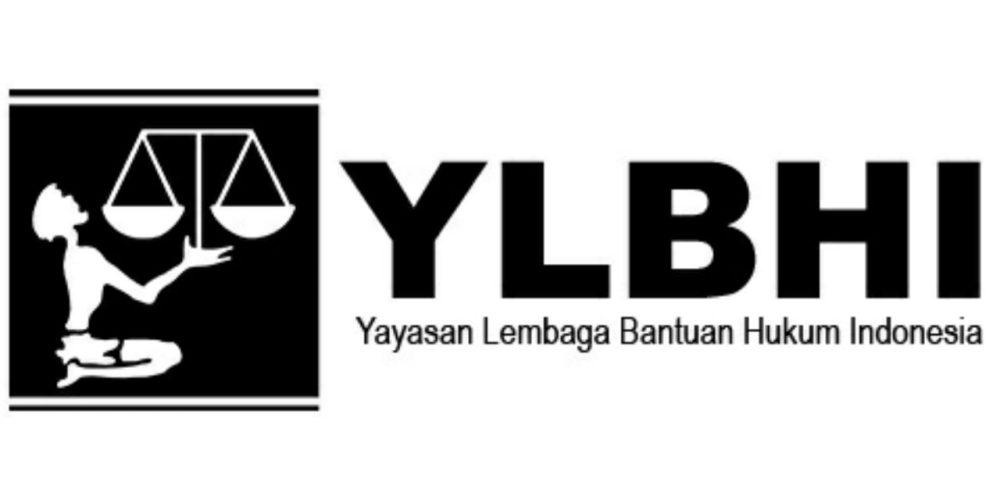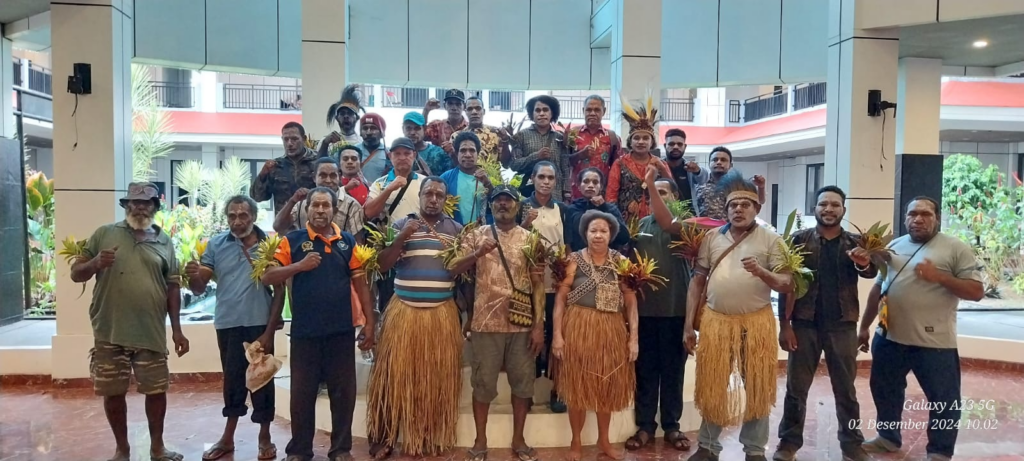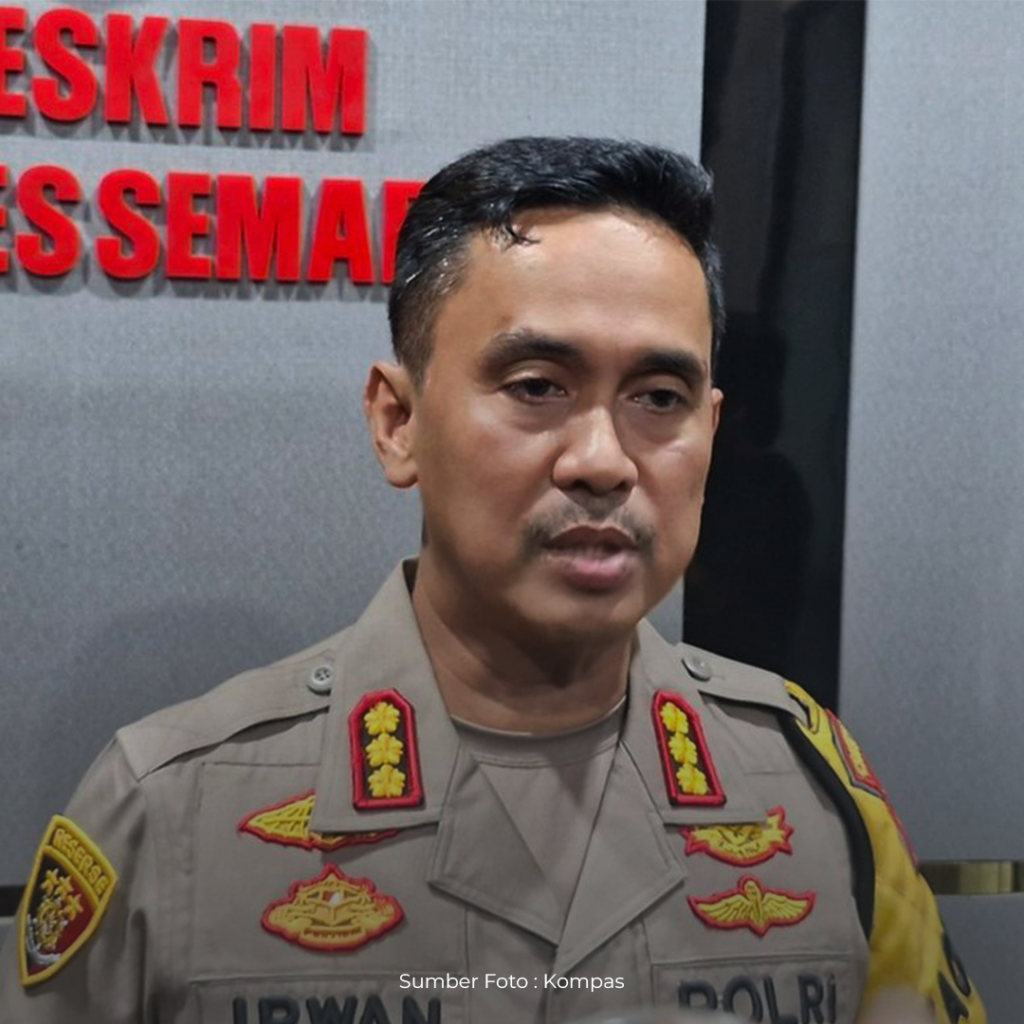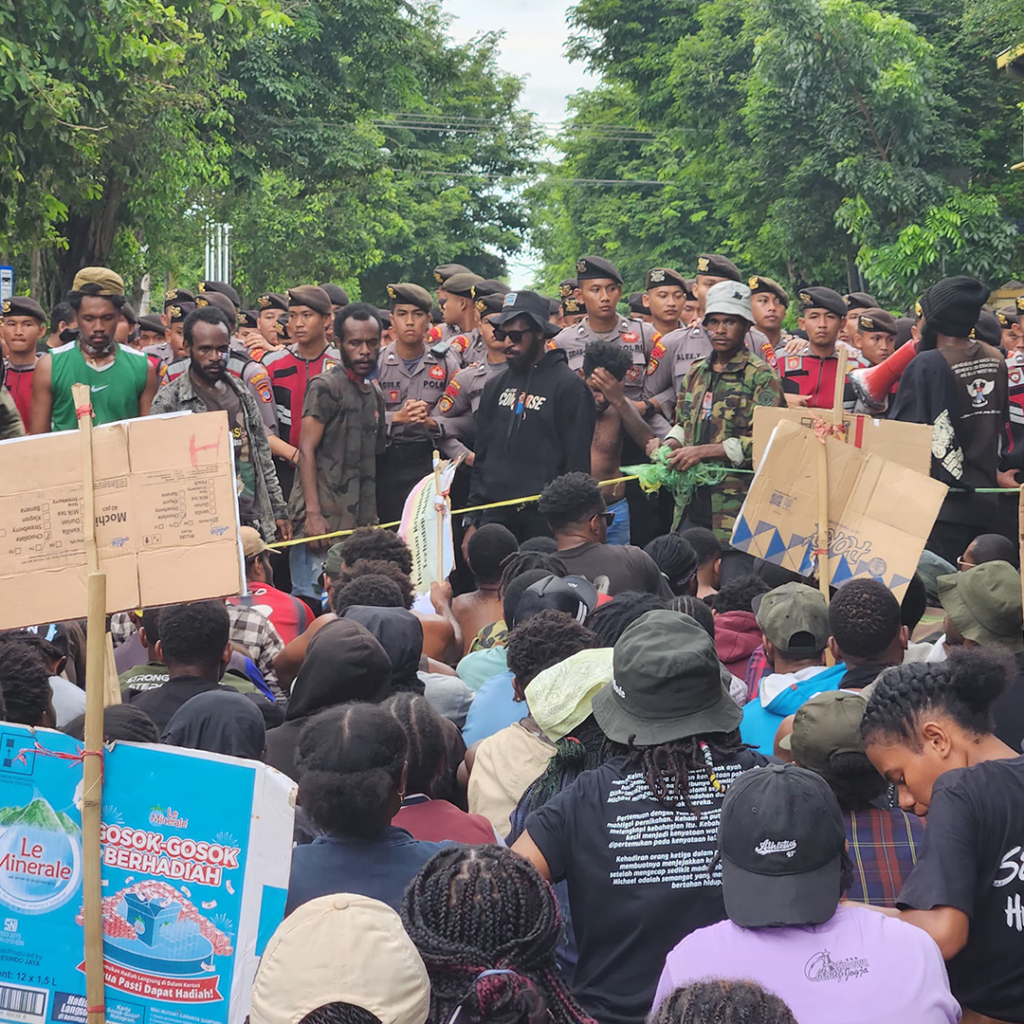Kyai[1] Nur Aziz, Sutrisno, and Rusmin, three poor farmers of Surokonto Wetan village, district of Kendal, province of Central Java, have been convicted and sentenced to eight years of imprisonment and to pay a fine of ten billion rupiahs for fighting for the right to the land their community has cultivated since 1970. Two farmers, Nur Aziz dan Sutrisno, will petition for a presidential pardon for this unfair and inhumane decision.
The farmers are representatives of the Surokonto Wetan, a village where its 450 heads of households have been working the 127.821 hectares of land. The land was a plantation that the community took over to cultivate after it was long abandoned. However, the land was later declared a state-controlled forest area after a swap between Perhutani[2] and PT Semen Indonesia[3], the latter of which is building a cement plant in Rembang, Central Java.
The villagers were not aware of the status change and, after being warned that they could no longer work the land some of them have been cultivating for more than four decades, sought an official explanation why they were to move. However, their persistence was met with the charge of illegal encroachment[4]. Three farmers were put on trial and convicted. The case reached the Supreme Court where the justices upheld the decision.
The Indonesian Commission of Human Rights saw that the case involved the following:
- The poor tenurial arrangement and conflict resolution by the Ministry of the Environment and Forestry, Perhutani, the Central Java Provincial Government, and the Kendal District Government over the land the people were cultivating to meet their basic needs;
- The land swap that directly affected the villagers’ livelihood;
- The criminal prosecution against the village leaders under the law.
The Commission noted that the above interrelated aspects affected the fulfilment of the human right to welfare, of protection of property, of livelihood of choice, and of the fulfilment of basic needs for adequate growth and development as guaranteed by the Human Rights Law[5].
Therefore, we proclaim our support for a pardon to be granted by the President of the Republic of Indonesia to Nur Aziz and Sutrisno Rusmin for the following reasons:
First, that in our view the villagers did not violate the law as was decided by the court. The Supreme Court’s decision is unreasonable and based on conjecture (zhann). According to Islamic clerics, an unsupported and inaccurate allegation is not a legitimate ground for punishment. A principle of Fiqh (Islamic jurisprudence) states that: “A clearly faulty assumption has no bearing on judgement”;
Second, that the Surokonto community has rightful claim over the land and that the decision fails to consider the survival of the villagers in general and the families of Nur Aziz dan Sutrisno Rusmin in particular. The decision therefore contradicts religious norms as it disregards this sense of justice;
Third, that the extended imprisonment and heavy fine are excessively burdensome for the smallholder farmers and therefore further betrays any sense of humanity;
Fourth, we believe that the Court’s judgment is far from justice and humanity;
Fifth, that if the petition for pardon is not granted then it can serve as precedent to subsequent cases involving disadvantaged people challenging power and state institutions;
Sixth, that Nur Aziz and Sutrisno Rusmin are champions of sustainable environmental management entitled under the law to protection against prosecution in accordance with Article 66 of Law No. 32 of 2009 on the Protection and Management of the Environment.
We will submit a petition via the Minister of Law and Human Rights per procedure[6] and implore the President of the Republic of Indonesia, Joko Widodo, to grant a pardon to Nur Aziz dan Sutrisno Rusmin.
Jakarta, 5 March 2017
- PBNU, the Central Executive Board of Nahdlatul Ulama
- Komnas HAM, the Indonesian Commission of Human Rights
- YLBHI, the Indonesian Legal Aid Foundation
- LBH Semarang, the Semarang Legal Aid Institute
- Lakpesdam NU, Nahdlatul Ulama’s Human Resources Research and Development Institute
- FNKSDA/ Front Nahdliyin untuk Kedaulatan Sumber Daya Alam, Nahdliyin Front for Natural Resources Sovereignty
- Gusdurian Network
- PGI, the Indonesian Communion of Churches
- KWI, the Indonesian Archbishops Conference
- Walhi Jateng, Central Java Friends of Earth
- Other concerned members of civil society
- The Village of Surokonto Wetan
Contacts:
Siti Rakhma Mary (YLBHI): 0812-2840-995
Zainal Arifin (LBH Semarang): 085-727-149-369
Hamzah Sahal: 0812-9423-3803
Saiful Huda: 0811-2794-345
[1] A term of respect for an Islamic cleric, usually a leader of an Islamic boarding school.
[2] A state-owned forestry company.
[3] A privately-owned building material producer.
[4] Article 90 para. (1) letter a of Law 18/2013 on the Prevention and Eradication of Forest Degradation.
[5] Articles 38 para. (1), 36 para. (1) and (2) , as well as article 11 of Law No. 39 of 1999 on Human Rights.
[6] Article 6A Law No. 5 of 2010 states that the Ministry of Law Human Rights examines petitions for pardon and communicates them to the President.



